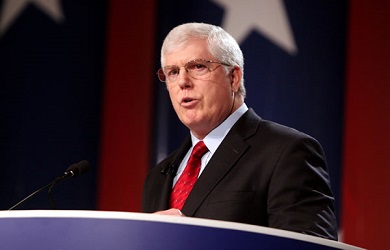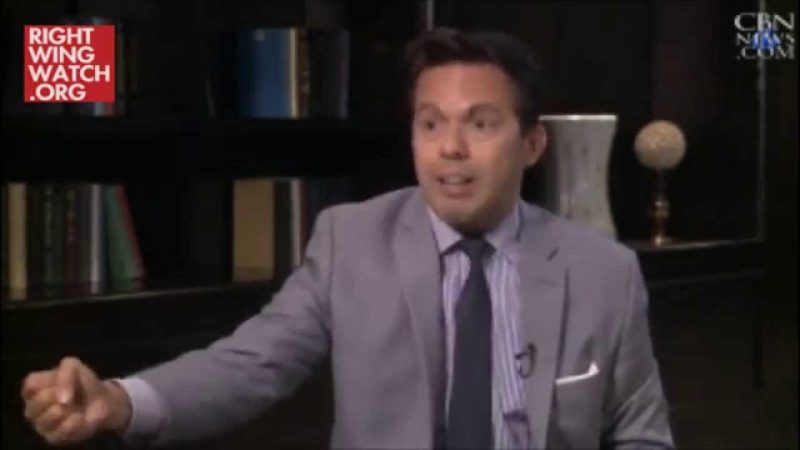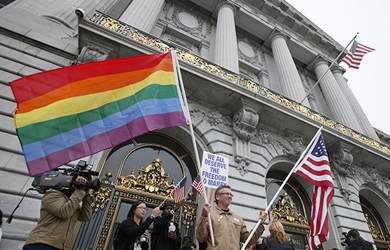The Family Research Council submitted two amicus briefs to the Supreme Court yesterday urging it to reject challenges to DOMA and to California’s Proposition 8. The briefs lay out some of the same arguments that we’ve heard many times from the FRC. But we were curious if the FRC would jettison one of its favorite talking points– the success of discriminatory measures at the ballot box –in light of last year’s resounding marriage equality victories in Maine, Maryland, Minnesota and Washington.
The answer was yes and no.
In its brief on Hollingsworth v. Perry, the Prop 8 case, the FRC goes back to the old talking point, ignoring the events of last November, to argue that “there is no ‘emerging awareness’ that the right to marry extends to same-sex couples.”
This Court has never stated or even implied that the federal right to marry extends to same-sex couples. And, with the exception of the district court’s decision below, which was affirmed on other grounds by the court of appeals, no state or federal court has held that the fundamental right to marry extends to same-sex couples. In sharp contrast to the “emerging awareness that liberty gives substantial protection to adult persons in deciding how to conduct their private lives in matters pertaining to sex,” Lawrence, 539 U.S. at 572, which, in turn, was based upon an examination of “our laws and traditions in the past half century, id. at 571, “[t]he history and tradition of the last fifty years have not shown the definition of marriage to include a union of two people regardless of their sex.” If anything, the fact that thirty States have amended their constitutions to reserve marriage to opposite-sex couples strongly suggests that there is no “emerging awareness” that the right to marry extends to same-sex couples.
But when the FRC wants to argue that gays and lesbians are not a “politically powerless” group deserving protection from discrimination, they flaunt the 2012 election results and point to how close previous anti-gay votes on state ballots were. This is from the brief on U.S. v. Windsor, the DOMA case:
Any lingering doubt that gays and lesbians are able to influence public policy, particularly with respect to the issue of same-sex marriage, should have been laid to rest by the results of the last election. Three States – Maine, Maryland and Washington, by popular vote, approved laws allowing same-sex marriage, and in a fourth State – Minnesota – voters rejected an amendment to the state constitution that would have prohibited same-sex marriage. Even in States where such amendments have been approved, the margin of victory has often been narrow, in some cases barely passing (as in California in 2008 and South Dakota in 2006), indicating that homosexuals, who comprise no more than one to two percent of the population, have succeeded in enlisting many heterosexuals to support their cause for same-sex marriage. In such a dynamic social and cultural environment, the belief that homosexuals are “politically powerless in the sense that they have no ability to attract the attention of the lawmakers,” strains credulity.
So when voters reject gay rights at the ballot box, they are reflecting public opinion. But when they vote in favor of gay rights, they have been “enlisted” to the cause by powerful gay rights lobbyists.







